Australia, a land of contrasts, where the rugged Outback meets the cosmopolitan coastlines, beckons with endless possibilities. From the iconic landmarks of Sydney’s Opera House to the breathtaking beauty of the Great Barrier Reef, Australia is a nation that pulsates with energy and diversity. The country’s vibrant cities, rich cultural heritage, and stunning natural landscapes make it an ideal destination for individuals and families seeking a new life.
As you explore the vast expanse of Australia, you’ll discover a rich tapestry of experiences that blend adventure, culture, and innovation. From the lively streets of Melbourne to the serene landscapes of the Blue Mountains, every corner of this country tells a story. You’ll find yourself surrounded by warm and welcoming locals, a melting pot of cultures, and a laid-back atmosphere that makes it easy to settle in.
Elite Woodhams Relocation, a partner of Reloc8 Asia Pacific Group, offers a comprehensive range of services designed to support individuals and corporations alike. With personalized care and attention to detail, making Australia your new home is an achievable goal. From visa and immigration assistance to home search and settling-in support, school search and education consulting, and cultural training, we provide the support you need to navigate the complexities of relocation and settle into your new life in Australia with ease.
So why wait? Let Elite Woodhams Relocation be your guide as you embark on this exciting new chapter in Australia. Discover more about our services and expertise at https://www.ewrelocation.com/
SECTION 1: UNDERSTANDING THE BASICS

What It’s Like to Live in Australia
The Australian lifestyle uniquely combines relaxation, adventure, community spirit, and cultural diversity. These elements create a distinctive way of life that residents and visitors cherish. Whether it is the laid-back attitude, the deep connection to nature, the passion for sports, or the celebration of multiculturalism, the Australian way of life is a rich tapestry that continues to evolve and thrive.
Cultural Differences
Australians’ easygoing and friendly nature is evident in their everyday interactions, with common phrases like “She’ll be right” and “No worries” as part of their everyday vernacular. A typical Australian greeting is “Hey, how are you?”. This is usually a casual salutation rather than a genuine inquiry about your well-being. The standard response is “I’m good, thanks. How are you?” Giving a detailed or overly personal response, especially to someone you do not know well, can be socially awkward.
Languages
English is the national language of Australia; however, Australians speak approximately 300 different languages, including many Indigenous languages. The top 10 languages spoken in Australia are Mandarin, Italian, Arabic, Cantonese, Greek, Vietnamese, Filipino, Spanish, Hindi and Korean.
SECTION 2: COST OF LIVING AND LIFESTYLE

Cost of Living
There is no exact figure for the cost of living in Australia. However, Expatistan estimates the current cost of living in Australia is roughly AU $4,312 per month for a single person or AU $7,786 per month for a family of four.
Lifestyle
Australia’s lifestyle is deeply intertwined with its natural environment and relaxed, community-focused approach to daily life. Australians have a strong affinity for outdoor activities and take advantage of the country’s diverse landscapes, which include beaches, mountains, and forests. Popular outdoor activities include surfing, swimming, hiking, and barbecuing. National parks and coastal areas are frequently visited. A relaxed and informal attitude often characterizes the Australian lifestyle.
There is a strong emphasis on work-life balance, with many prioritizing leisure and family time. This means Australians usually have flexible working hours, and it is not uncommon to see people taking breaks during the day to enjoy outdoor activities or spend time with their families. The laid-back mentality is reflected in Australians’ friendly and approachable demeanor. Café culture is an integral part of Australian life, with a particular emphasis on weekend brunches. Cafés serve as social hubs where people gather to enjoy quality coffee, innovative cuisine, and casual conversation. The focus on fresh, locally sourced ingredients and the proliferation of independent cafés contribute to a vibrant culinary scene.
Healthcare Services
The healthcare system in Australia is one of the best in the world, providing safe and affordable healthcare. Medicare is Australia’s universal public health insurance scheme. It guarantees all Australians (and some overseas visitors) access to a wide range of health and hospital services at low or no cost. Reciprocal countries that are eligible include New Zealand, the United Kingdom, the Republic of Ireland, Sweden, the Netherlands, Finland, Italy, Belgium, Malta, Slovenia, and Norway. Expats who do not qualify will need to ensure they have a good private health insurance policy.
Educational System
Australian schools, including government and private schools, are among the finest in the world. Fees and entry requirements vary across Australian states, territories, and schools. There are selective or specialist government schools that cater to gifted and talented students; however, these schools are only available to permanent residents.
SECTION 3: BUSINESS CULTURE AND WORK ETHIC
Work Culture
Australians are renowned for their laid-back attitude. This does not mean they are lazy or unconcerned, but rather that they are very easygoing, warm, and friendly. For example, you will hear the phrase “No worries!” regularly. It may be as simple as getting a co-worker a coffee or helping them with their workload. Your co-workers will recognize your friendliness and team spirit. As a result, they will welcome you into the group.
By all appearances, managers may seem to be another team members as they only keep a marginal power distance. Nevertheless, hierarchies are still definitive. Managers try to reach decisions through inclusive avenues so employees can feel involved in the decision-making process.
Typical Workday and Work Week
Australians work on average 38 hours per week, with 7.5 hours a day. However, since the adoption of working from home, the typical workday has started to evolve with more flexibility. Some companies are opting for a shorter work week and may offer every second Friday off.
Tips for Making Good Business Relationships
Australians are direct and clear-cut in their business communication.
They are rarely intimidated by others’ status and speak up when conveying their ideas. Likewise, they wish to be presented with plain facts and dismiss points made using emotional hype, such as exaggerated claims. Australians are also likely to be open if they disagree with you. They will not be rude (they are usually diplomatic in their approach); however, expect them to arrive straight to their point without euphemism. Because of their matter-of-fact approach, Australians do not feel it necessary to build personal relationships before doing business. They will be more interested in your experience, credentials, and company longevity. Punctiality is expected and first names are generally used, with a handshake as the standard greeting.
SECTION 4: HOUSING AND ACCOMMODATION

Commonly Available Accommodation
The styles of houses are very diverse in Australia. Freestanding houses, whether multi-story or bungalows are the most common and highly sought-after type of home in Australia. Then we have duplexes or semi-detached homes, which are new properties built on a block of land after the older home has been demolished. Units or apartments: units are usually bungalow-style and only built in small quantities on a normal-sized Australian block of land. Most home options are unfinished, and apartment buildings are becoming more commonplace in Australia, with people looking for a simpler lifestyle.
Housing Prices Across Different Regions
Housing prices vary across Australia. For an accurate picture, please feel free to download our Rental Guides; HERE
Key Considerations When Searching for Housing
Location and community are some of the most important considerations. Making sure the community fits your lifestyle, needs, and budget is extremely important. Families also consider schooling options essential when searching for a home. The most common lease term agreement is 12 months, and most properties are unfurnished.
Process of Purchasing a Property
Homes are typically sold at auction in Australia. To participate or bid at an auction, potential buyers must register with the vendor’s agent and be given a bidder’s number. The auctioneer oversees the bidding process. They take bids from potential buyers and keep track of the current bid price. You will need to have your ID, passport, and driver’s license, and if you are a successful bidder, you will need to pay a 10% deposit on the day of the auction.
SECTION 5: TRANSPORTATION AND CONNECTIVITY
Main Forms of Transportation
Transport in Australia is very reliable and varies by region. Trains and buses are the main modes of transport in Sydney, while in Melbourne, trains and trams are prevalent. The census data from 2021 showed that 56% of Australians drove their cars to work, while 4,5% took public transport. 3.2% rode bicycles and 21% worked from home.
Internet and Mobile Connectivity
Australia has some of the slowest and most expensive internet speeds in the developed world. According to the Speedtest Global Index, Australia ranked 60th worldwide for average download speeds, at 57.9 Mbps.
Best Cities or Regions for Commuting to Work
Commuting to work is easy in all Australian cities; however, Sydney and Melbourne would take longer than other cities due to their larger populations.
Accessibility to Main Business Hubs
Business hubs in Australia are normally located in the central business district or city center, easily accessible via public transport.
SECTION 6: SOCIAL INTEGRATION AND NETWORKING
Hospitality
Australians are known for their friendliness and strong sense of community. They often extend their goodwill beyond their immediate circle. The “Aussie” spirit is deeply rooted in mateship, fairness, and a relaxed “no worries” attitude. This cultural ethos is evident in the warm smiles, easy-going conversations, and genuine willingness to help others. Aussies pride themselves on being approachable and supportive, always ready to lend a hand or share a friendly chat, embodying a sense of community and camaraderie that makes everyone feel welcome.
SECTION 7: DEALING WITH EMERGENCIES
Emergencies
Australia has and continues to cope well with natural disasters through well-established and cooperative emergency management arrangements, effective capabilities, and dedicated professional and volunteer personnel.
Steps to Follow in Case of a Medical Emergency
Dialing 000 will take you to the emergency services, where an operator will assess the situation and send the appropriate emergency services, i.e., Police, Ambulance, and Fire Brigade.
Natural Disasters
In the summer season, bushfires can take place in the country areas of Australia, which are not a threat to the city regions. Extreme weather is common in Australia, with high temperatures in summer. It is important that new arrivals are aware of the dangers of the summer sun, along with swimming at beaches that are not patrolled by lifeguards. Our online portal has information available to educate on what they need to be aware of.
__________________________________________________________________________________
Reloc8 Asia Pacific Group
Reloc8 consists of key partners located in 12 countries across the Asia Pacific region. Together, we offer employee mobility services to clients seeking assistance in 23 locations throughout Asia, including Australia, China, India, Indonesia, Japan, Korea, Malaysia, New Zealand, Philippines, Singapore, Taiwan, and Thailand. In addition to these, we extend our services to the following destinations: Fiji, Hong Kong, Sri Lanka, Papua New Guinea, New Caledonia, Pakistan, Bangladesh, Nepal, The Solomons. The Maldives, and Guam. Our members represent the premier destination and immigration service providers in the Asia Pacific region. Each partner maintains their unique style and cultural identity, contributing to the Alliance’s diverse and multicultural atmosphere. However, they all share a collective commitment to upholding the highest standards of ethics, integrity, and service excellence.



